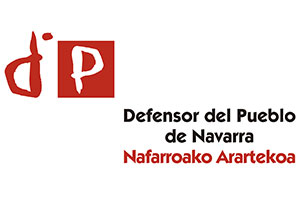Ombudsperson of Navarre
Defensor del Pueblo de Navarra-Nafarroako Arartekoa
About the Member
Patxi Vera Donazar, Pamplona/Iruñea (1959). Ombudsman of Navarre since the 23rd March 2022.
Graduate in Information Sciences (University of Navarre, 1981). In addition:
- Expert in Team Management and Expert in Executive and Management Competences (MONE Business School (2003–07).
- Executive Coach by the Accredited Coach Training Program of the Escuela Europea de Coaching EEC, awarded by the International Coach Federation ICF (2012).
- Common Good Business Consultant by the AFEFEBC (2016)
- Competence Level II in Advanced, Action Research Training Experience Social Value by the UPV/EHU (2018)
- SDGs and Agenda 2030 (United Nations Institute for Training and Research, 2021)
Before being appointed Ombudsman of Navarre, he has simultaneously held the following positions:
- Coordinator of the GIS SDG Working Group (2021–22).
- Vice president of the Social Innovation Unit Association (2019–22)
- Vice president GEAccounting IEA (2018–22)
- Agripooler in ACODEA and AGRITERRA (International Development Cooperation, 2018–22)
- Executive Coach (2012–22)
- Member of the Board of Directors CEPES Navarra (2008–22)
- Managing Director UCAN (1992–2022)
- Member of the Board of CAE Managers (1992–2022)
- Head of Cabinet of the Regional Minister of Agriculture, Livestock and Forestry of the Government of Navarre (1987–91)
- Editor of the Political Section of the newspaper Navarra Hoy (1983–87)
- Director of Crónica Ribera magazine (1981–82)
Yared Award (2022), recognition of the best financial innovation initiative with positive or social value, awarded by the ECRI Research Group (Ethics in Finance and Social Value). See full CV here.
About the Member's Office
The Ombudsperson of Navarre is the High Commissioner for Human Rights of the Parliament of Navarre and its primary function is to supervise the behaviour of Public Entities of Navarre to protect and improve the rights and freedoms of the citizens of Navarre.
The institution was established by Act 4/2000 and started operating in March 2001.
The Ombudsperson of Navarre is elected and appointed for a period of six years by the Parliament of Navarre. During this mandate, the Ombudsperson works autonomously, not being subject to any order or instruction from any authority.
The safeguard of citizens' rights is mainly carried out through investigations which can be initiated ex officio or at the request of any person (natural or legal) holding a case of maladministration and which, in case of being proved the grounds upon which are based, result in recommendations and suggestions to Public Entities of Navarre.
Besides, as of 2021, the Ombudsperson of Navarre is entitled to mediate disputes and controversies between either two Public Entities of Navarre or a Public Entity of Navarre and a citizen or group of citizens, in this case, provided that the dispute or controversy is vested with a general interest.
Click here for more information on the institution of the Ombudsman of Navarre.
Key Information on the Language Situation in this Country/Region
Article 9 of the LORAFNA (the Statute of Autonomy of Navarre) provides that whereas Spanish has an official status in Navarre, Basque only has an equal official status in the Basque-speaking part of the territory.
Following this criterion, Act 18/1986 distinguishes three linguistic zones or areas in Navarre: the Basque-speaking area, the so-called "mixed" area and the non-Basque-speaking area.
As a result of this situation, depending on the area, language rights are different and this results in important controversies, especially in relation to access to public employment. Thus, in the Basque-speaking and "mixed" areas, citizens have the right to be attended in Basque by public servants; however, in relation to public employment there is a significant difference between both areas, since whereas the knowledge of Basque may be required to specific public employments either in the Basque-speaking or in the "mixed area", in the rest of public employments, the knowledge of Basque must be considered at the time of evaluating candidates only in the Basque-speaking region, being facultative its evaluation in the "mixed area". Hence, the main difference between the Basque-speaking and the "mixed" area is the treatment of the knowledge of Basque in relation to those vacancies in Public Entities in which is not specifically required such knowledge. On the other hand, in the non-Basque-speaking area, citizens have the right to use Basque, but Public Entities are not obliged to attend in Basque.
According to the 2021 sociolinguistic survey, 14.1% of the population of Navarre over the age of 16 speaks Basque well (the so-called "Basque Speakers") and 10.6% have some knowledge of Basque (the so-called "Recipient Basque Speaker"), though they do not speak it well. Therefore, one out of every four citizens of Navarre has some knowledge of Basque.
Per the linguistic areas established by Act 18/1986, in the Basque-speaking area, the percentage of Basque speakers is 62.3%, and of Recipient Basque speakers is 13.7%. In the"mixed area", these percentages are 12.6% and 11.5% and, in the non-Basque-speaking area, they are 1.6% and 7.5%, respectively. The higher percentage of knowledge of Basque in the young age group (16-24) stands out, with 28% Basque speakers and 12.2% Recipient Basque speakers. Besides, the knowledge of Basque has increased over the last 30 years: in 1991, 9.5% were Basque speakers, in 2006 11.1% and in 2021 14.1%.



